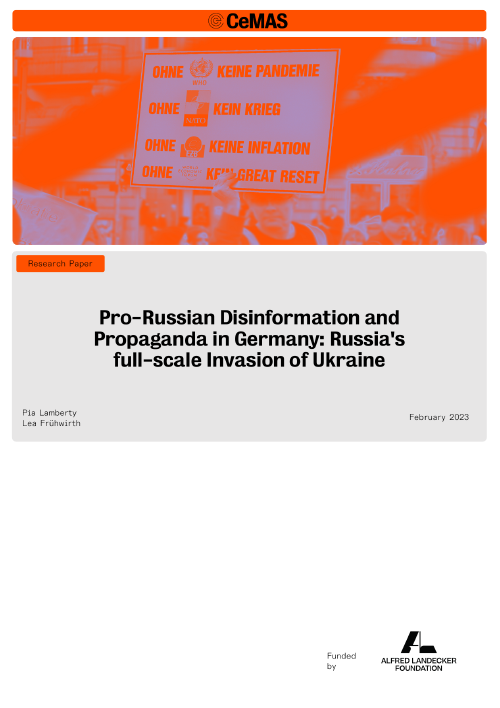In the wake of the Russian war of aggression on Ukraine, there was also a stronger focus on the role of disinformation in Germany. Although knowledge of the functioning and goals of disinformation is of great importance for developing meaningful intervention options, the topic has long been neglected in Germany. The research paper “Pro-Russian Disinformation and Propaganda in Germany: Russia’s full-scale Invasion in Ukraine” takes a detailed look at the developments in the field of disinformation and the challenges in capturing it since the beginning of the war and identifies recurring patterns that are helpful to derive political and societal measures.
It is striking that the disinformation landscape has fragmented since the start of the Russian war of aggression. After the shutdown of the Russian propaganda medium RT DE, other actors achieved great reach in disseminating pro-Russian disinformation. These include Russian embassies as well as so-called “alternative media” and pro-Russian influencers. Disinformation campaigns also target Ukrainian refugees and attempt to undermine solidarity with Ukraine. The false claims are also used for right-wing extremist agitation. The conspiracy ideology milieu also features predominantly pro-Russian attitudes that trivialize and legitimize the Russian war of aggression on Ukraine.
Overall, it is evident that disinformation poses a long-term threat to liberal democracies. Not only since the beginning of the Russian invasion of Ukraine has disinformation been deliberately used as a propaganda tool to destabilize Western democracies and undermine solidarity with Ukraine. A deeper sociopolitical debate on how to counter the rising tide of disinformation campaigns is therefore needed.
